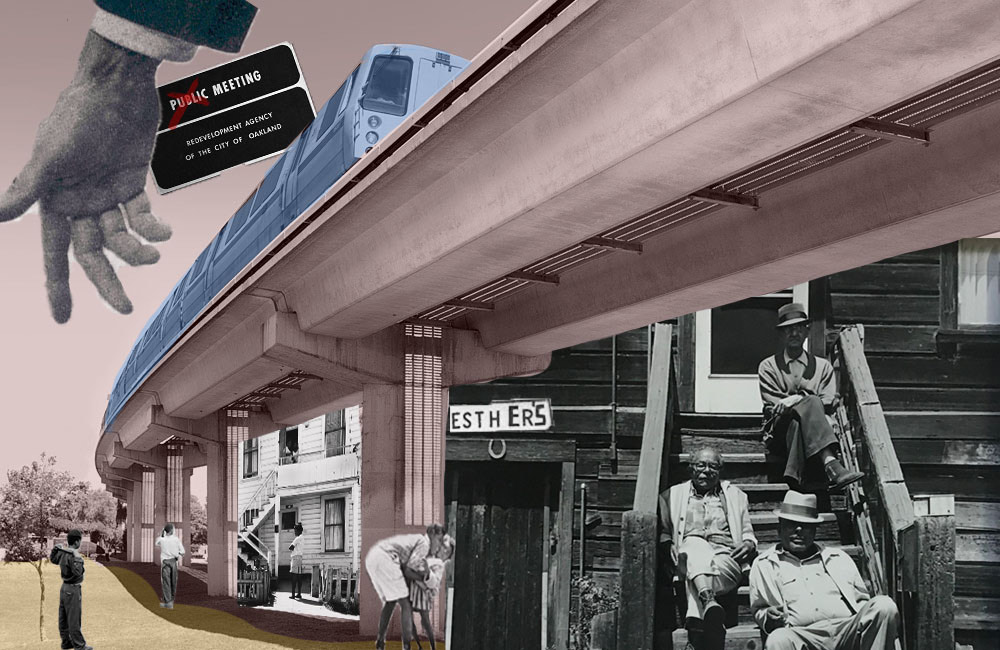⎯⎯Projects⎯⎯

Image Credit: Maya Sapienza
ARCHIVE OF URBAN FUTURES: OAKLAND
The Archive of Urban Futures (“the Archive”) is a collaborative project with Moms 4 Housing, generously supported by a grant from the Mellon Foundation’s Humanities in Place program. The Archive focuses on questions of history, value, the right to place, and memory and erasure in Oakland, California. The Archive will take the form of a database of material about Oakland and visions of and for its future over time, as well as related activities including community-based workshops, institutes, and art/exhibitions.The Archive is an effort to anticipate possibility by assembling histories of Oakland that are not reducible to its already well-documented experiences of racialized inequality and dispossession, while at the same time we recognize the ways that racism is always and already a productive enterprise. Or, as Saidiya Hartman (2008) writes, “to imagine what cannot be verified…to reckon with the precarious lives which are visible only in the moment of their disappearance” (p. 12). Engaging historically displaced, dispossessed, and disenfranchised urban communities as interpreters and investigators disrupts what counts as knowledge and allows for an expansive reading of archival data into alternative historical narratives – surmising not only what happened in the past, but also what could have been.
The work of The Archive was featured in the Oakland Museum of California’s (OMCA) Black Spaces: Reclaim & Remain exhibit.
Selected Press for Black Spaces: Reclaim & Remain:
KQED
‘Black Spaces’ at the Oakland Museum Meditates on Displacement and Reclamation
NBC Bay Area
‘Black Spaces: Reclaim & Remain': New exhibition at Oakland Museum of California
The Oaklandside
‘There are Black people in the future’: Oakland Museum exhibit documents displacement and resistance
SFist
Field Notes: 'Black Spaces' at OCMA, East Bay Skyline Trail Hike, and Tenderloin Museum Turns 10
UC Berkeley News
UC Berkeley student collective Archive of Urban Futures shines at new OMCA exhibit
The Guardian
‘Our dreams were shattered’: the Black Californians forced from the city they built
East Bay Times/Mercury News
Former residents remember Russell City after historic passage of reparation fund: Museum exhibit examines the triumph and tragedy of Russell City’s history
The Daily Californian
Exhibit by campus students, faculty uncovers Black history in Oakland
SF Chronicle
'Black Spaces' at OMCA traces the past and future of Black communities in the East Bay
East Bay Express
Black spaces speak: Stories of resilience and future-building echo through the East Bay at Oakland Museum's latest exhibition